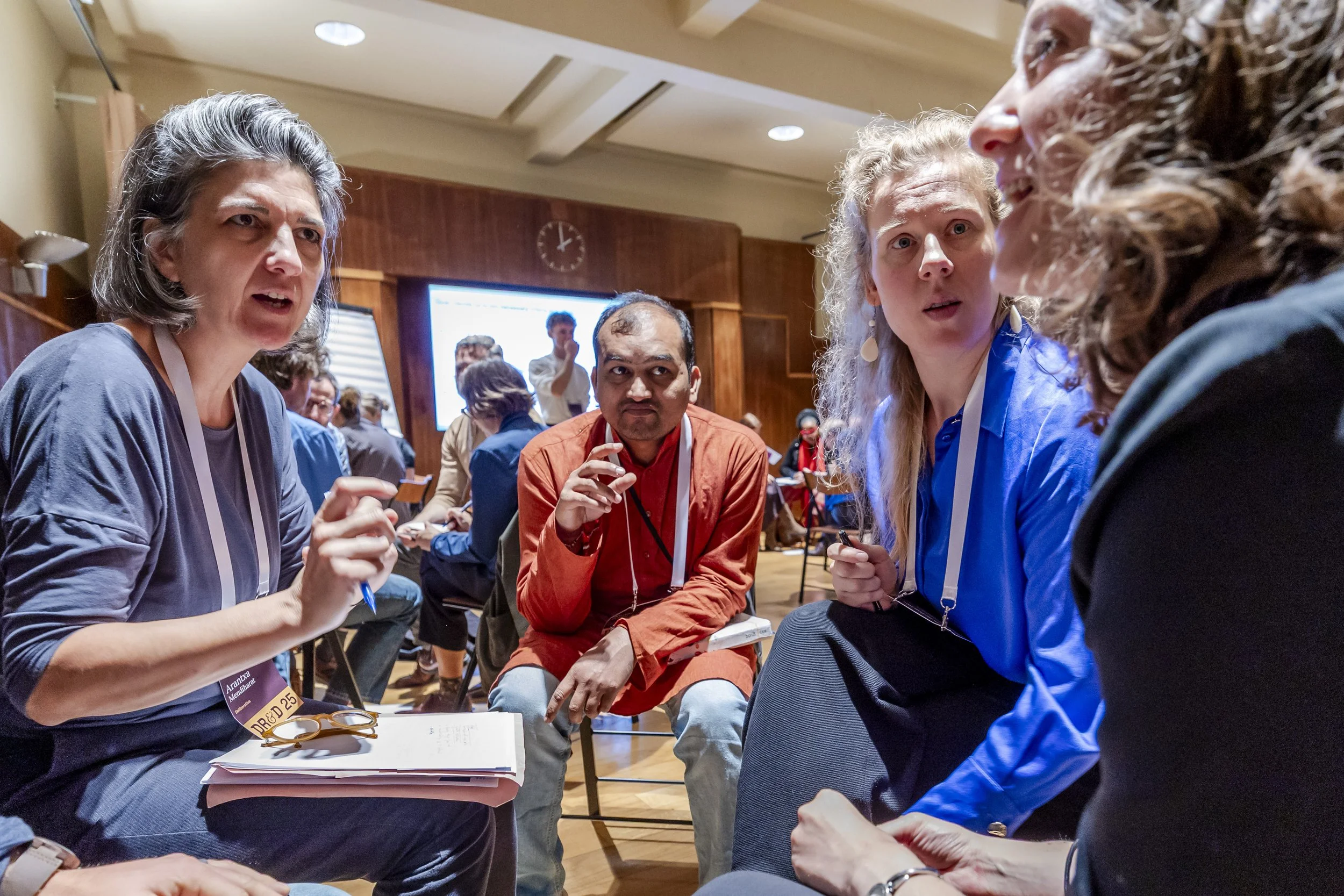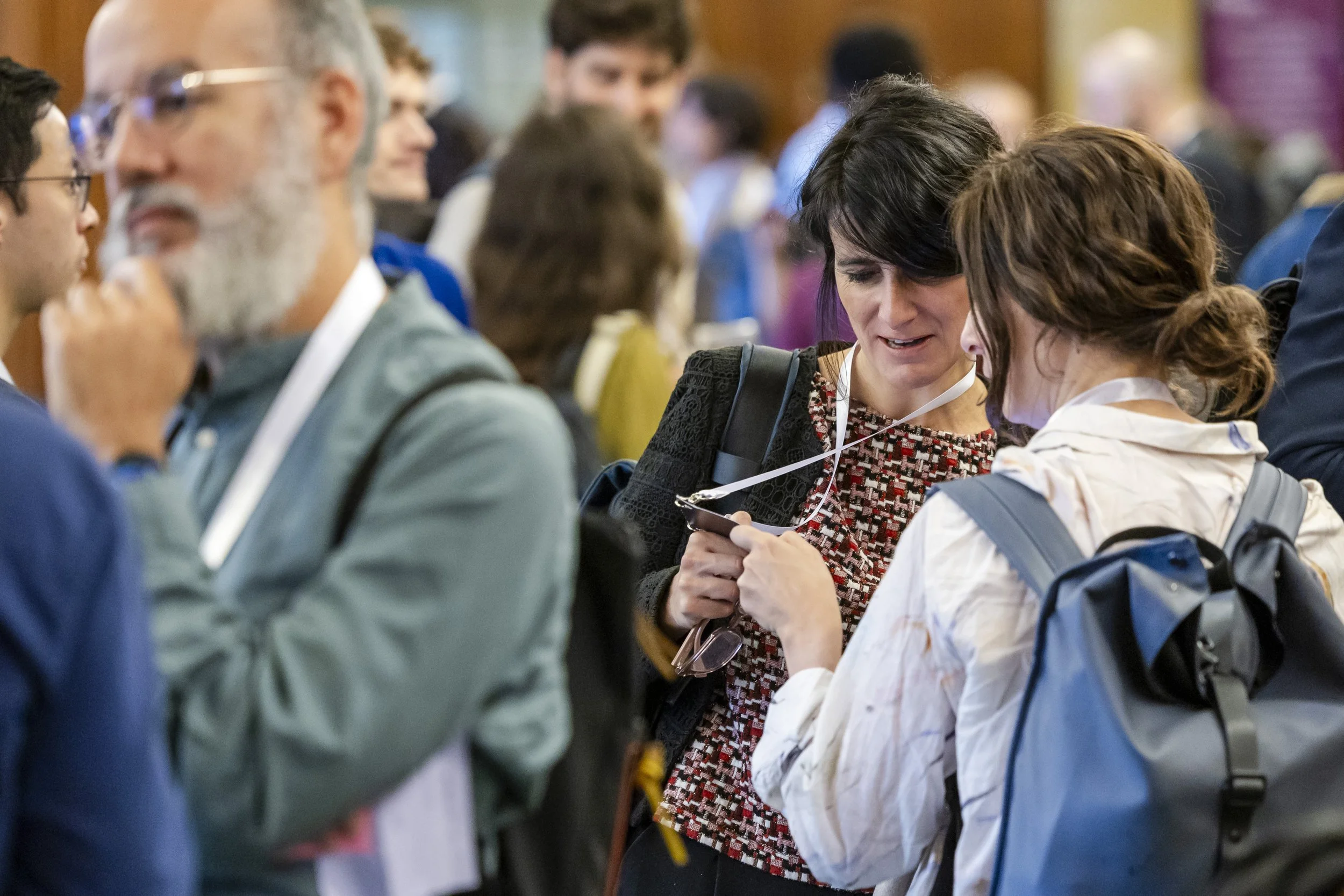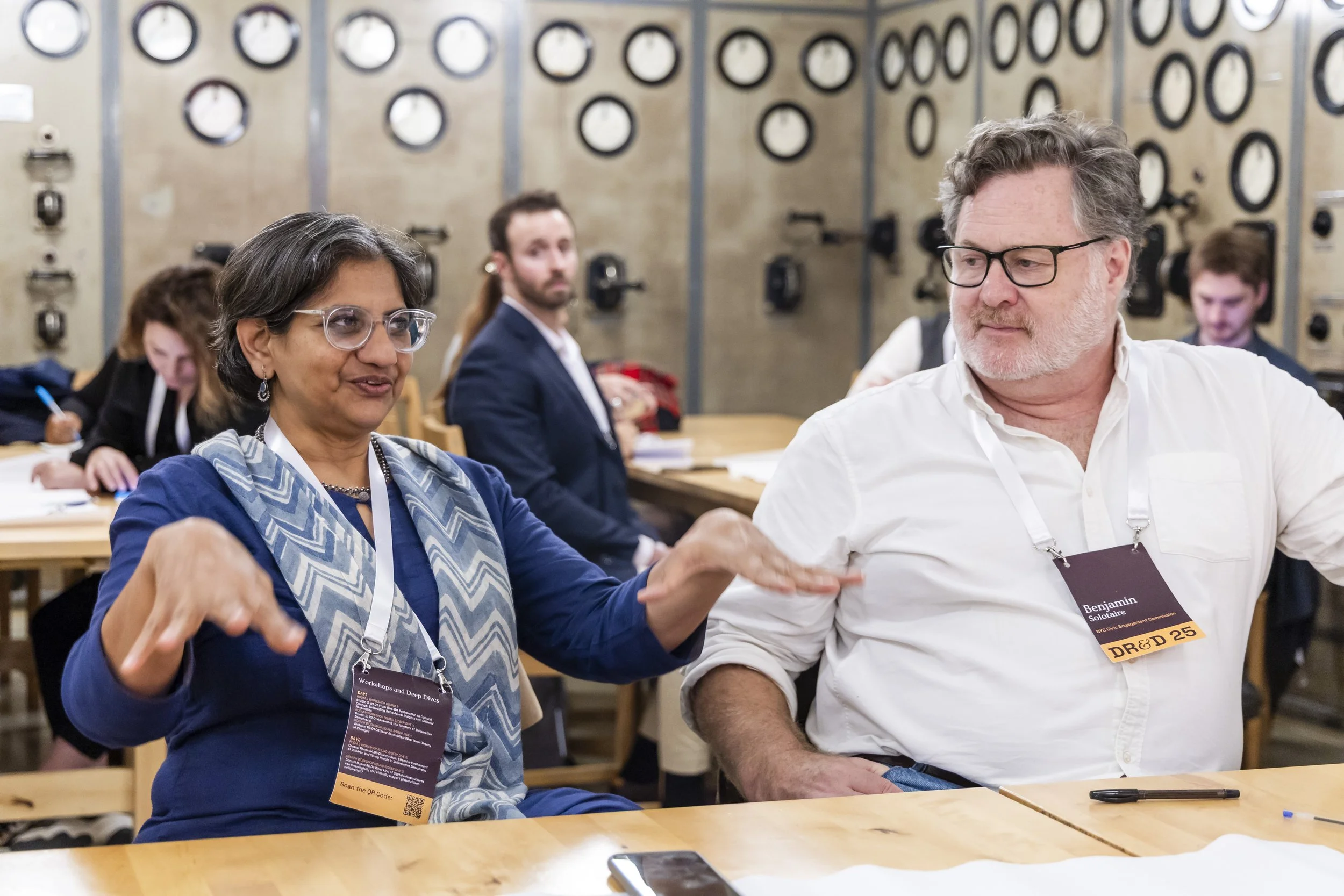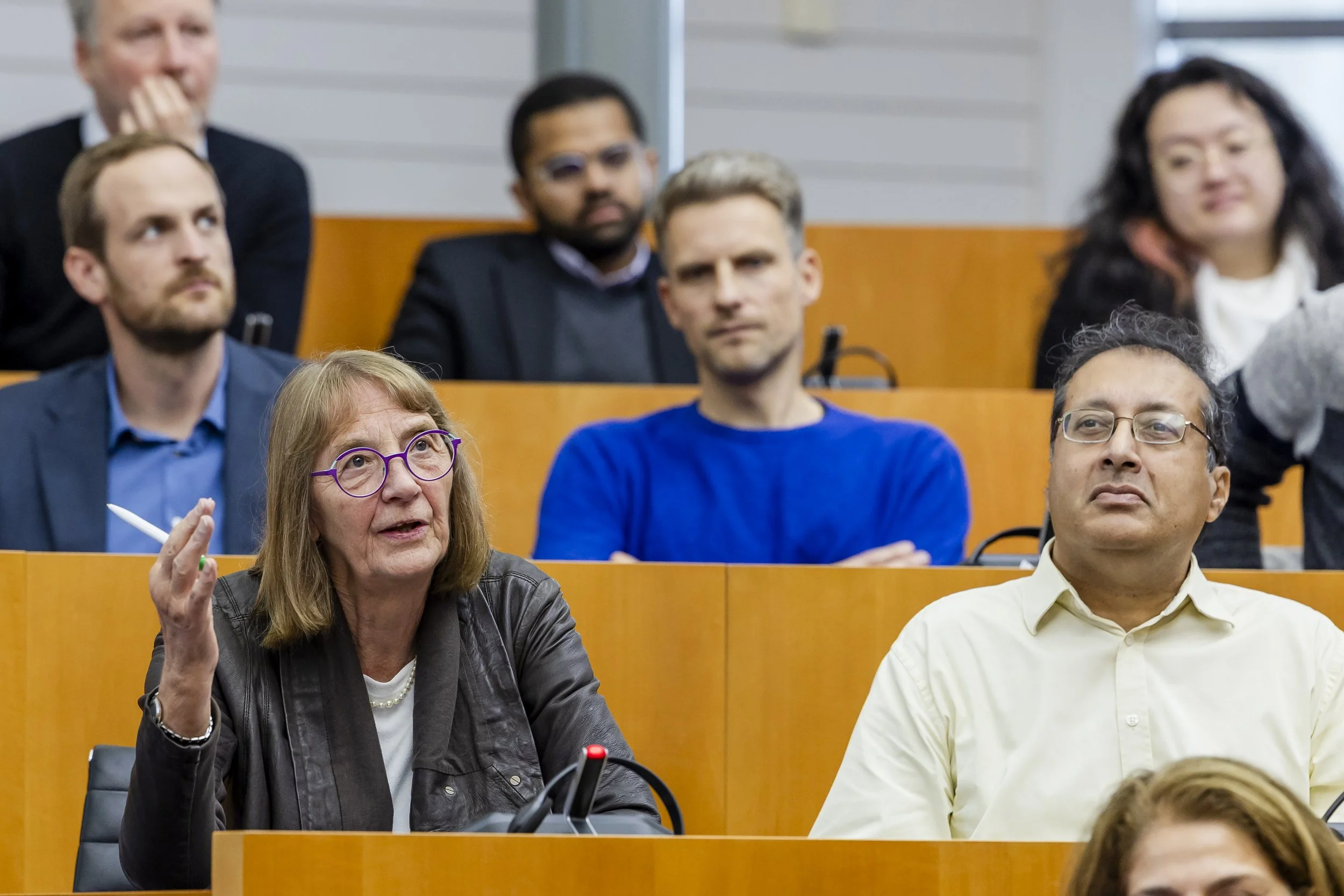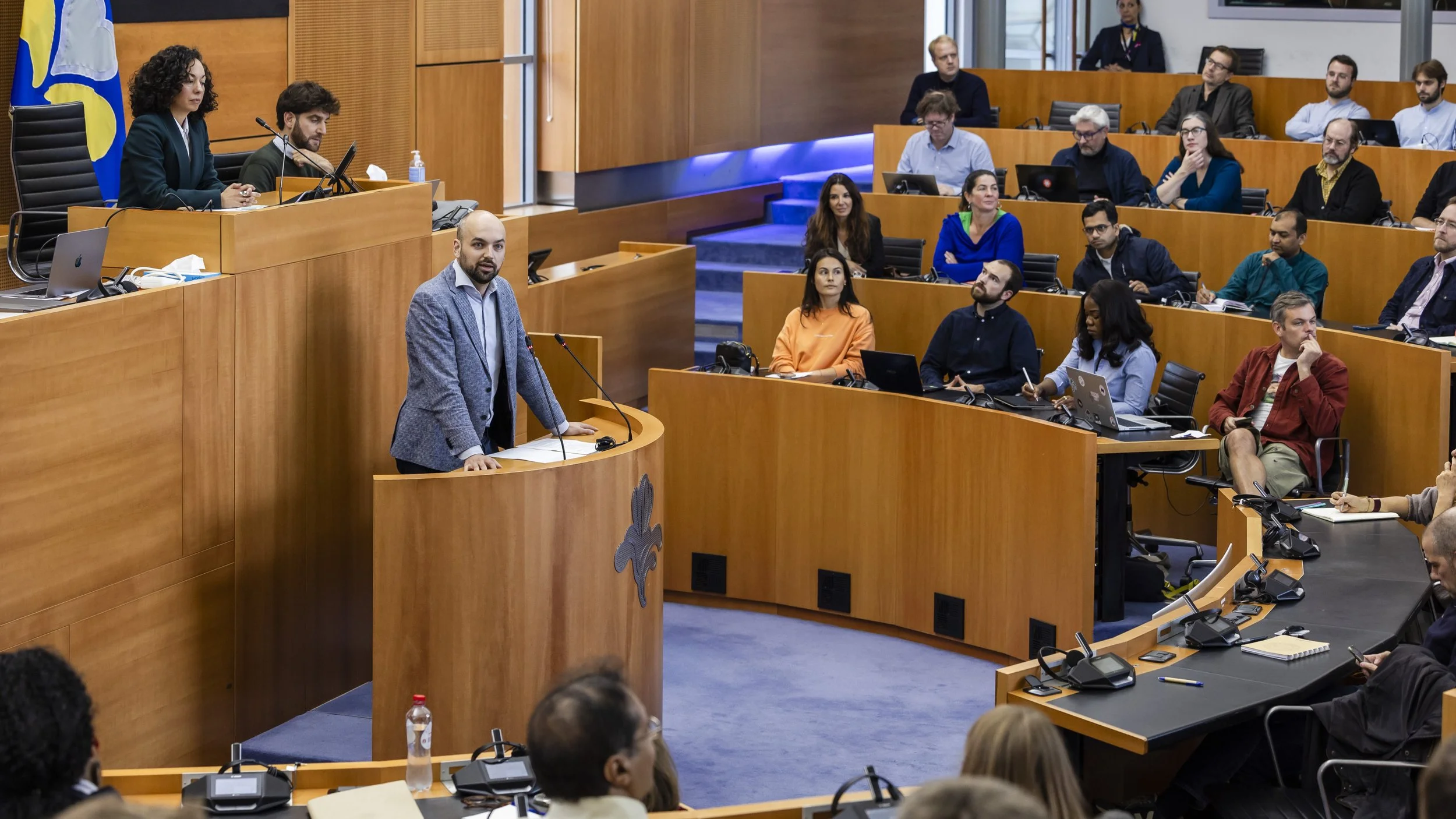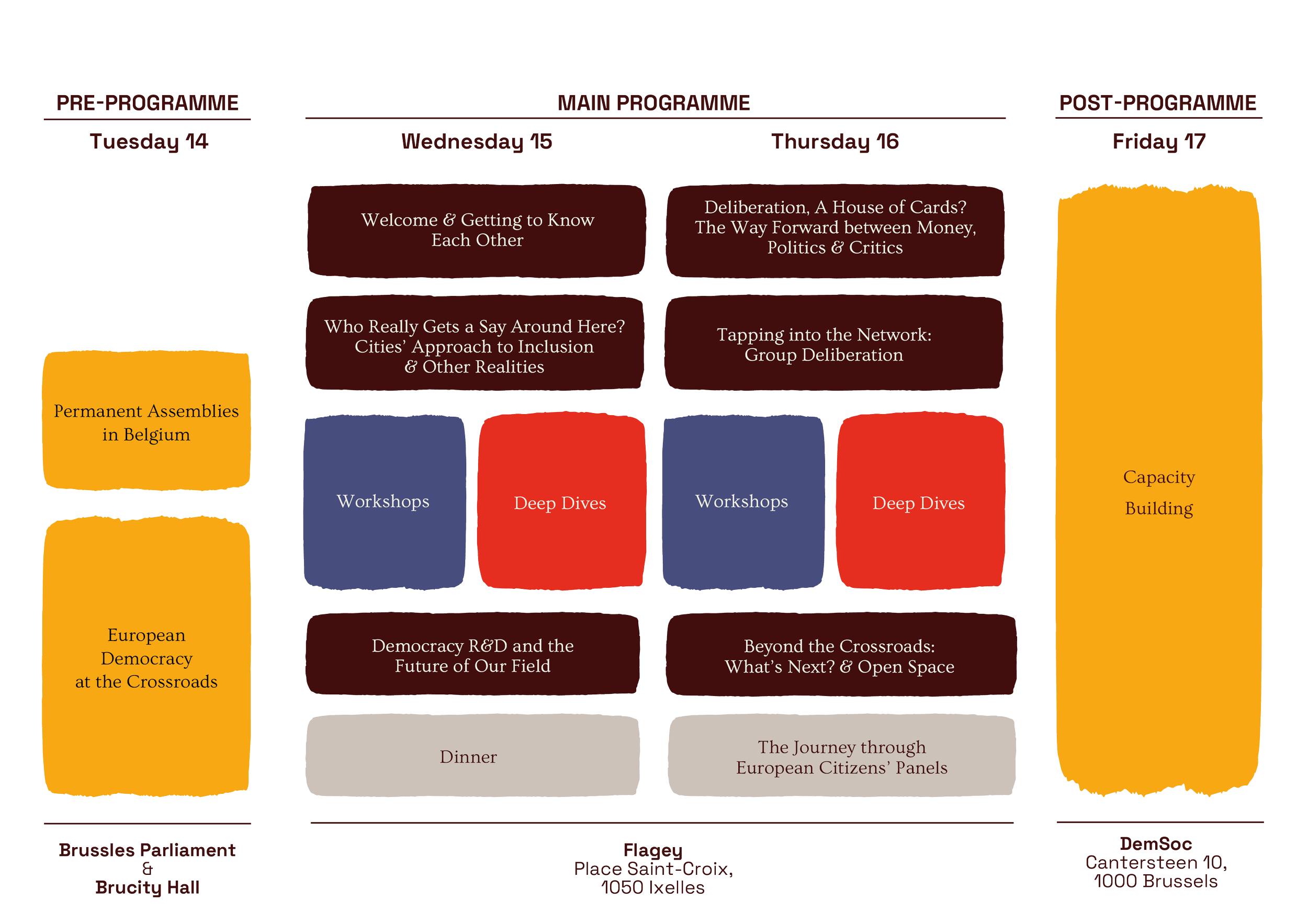The 9th annual gathering of the global network of democratic innovators attracted over 270 participants, marking its largest and most diverse event yet, with strong representation from Global South countries.
Over two days, attendees engaged in dynamic discussions, emphasizing the importance of citizen involvement in shaping democratic institutions. While serious progress has been made by the deliberative community, there is a shared commitment to advancing the field through stronger alliances. An emphasis on improved communication of democratic values and the creation of sustainable models funded by diverse sources.
These strategies will empower the network to tackle current and future challenges effectively.
What happened in Brussels?
Watch recordings from the Plenary Room
Beyond Crossroads:What’s Next?
Yves Dejaeghere, Executive Director of FIDE - Europe, gave his final remarks and invited youth citizens’ assembly members, Konstanze Mohr (Pro Futuris) and Niamh Purcell (Child Rights International Network) to the stage to share their hopes.
Radical Inclusion
Keynote by Fatima Zibouh
The event began with a passionate and inspiring speech by Fatima Zibouh. She painted a vivid and colorful picture of Brussels, where she spends her time building bridges between different communities. During her talk, she introduced the concept of "radical inclusion," which emphasizes a deeper, more meaningful way of including individuals in democratic processes. An idea that also has an impact in a much broader context.
Who Really Gets a Say Around Here?
Cities Approach to Inclusion & Other Realities
Indira Latorre, Professor at Universidad del Rosario, Bogotá, Colombia, & Co-Lead, Democracy R&D
Sara McPhee Knowles, Associate Professor, Yukon University and Chair at the Yukon Citizens’ Assembly on Electoral Reform
Ljiljana Kolarski, PhD candidate at the Faculty of Political Sciences, University of Belgrade
Moderator: Yves Mathieu, Founder and Co-director, Missions Publiques
